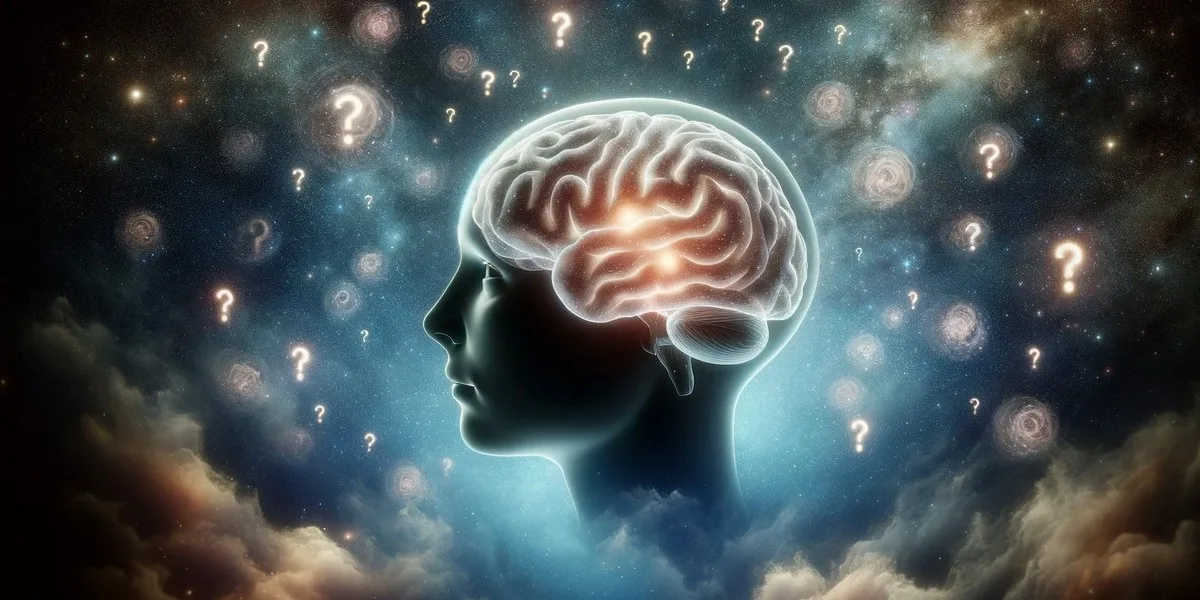04/08/2025
04/08/2025

NEW YORK, Aug 4: Imagine looking up from your phone and suddenly realizing that, for a fleeting moment, you weren't thinking about anything at all. It's not a lapse in memory or a daydream — it’s a moment when conscious thought simply ceases. Neuroscientists call this phenomenon "mind blanking," and recent studies have shed light on this curious mental state.
Mind blanking, described as a brief, waking state where conscious thought stops completely, has long been overlooked by researchers who once believed that the brain was always actively generating thoughts. However, recent findings suggest that mind blanking is a distinct conscious state, associated with changes in "arousal" — the brain's responsiveness and alertness to stimuli. This discovery is reshaping how scientists understand consciousness and how the brain works during moments of mental stillness.
Thomas Andrillon, a neuroscience researcher at the French National Institute of Health and Medical Research and the Paris Brain Institute, explained that for some people, mind blanking is like a "blip" in the mind — a sudden pause when there’s simply nothing. "But it's not that feeling of ‘there was something I forgot,'" he said. "It’s just… nothing."
Though many are unaware of these lapses until prompted, studies indicate that mind blanking is more frequent than people realize. Andrillon pointed out that about 5% to 20% of a person's waking hours may be spent in this state. People often only recognize it when asked, "What were you just thinking about?"
In a groundbreaking study published in Trends in Cognitive Sciences in July 2025, Andrillon and his team used electroencephalography (EEG) to track brain activity during lapses in attention, including mind blanking. In the experiment, participants were asked to press a button every time they saw a number on a screen — except for the number "3," which they were instructed to skip. This task measured how quickly participants responded and their ability to inhibit their actions.
The study revealed key differences in brain activity during mind blanking and mind wandering. While participants' responses were quicker when their minds were wandering, they slowed down noticeably during mind blanking, suggesting that the two mental states are distinct. The EEG data showed a slight slowing of brain activity during mind blanking, supporting the theory that this state is associated with reduced brain function compared to active thinking.
EEG, however, cannot pinpoint which specific regions of the brain are involved during mind blanking. Andrillon compared the technology to listening through a wall: you can tell if a group is noisy or quiet but can't identify who is making the noise. To address this limitation, the team turned to functional MRI (fMRI), a tool that provides a clearer view of brain activity but at a slower tracking speed.
In the fMRI portion of the study, led by Athena Demertzi at the GIGA Institute-CRC Human Imaging Center at the University of Liège, participants were asked to think about nothing while resting in the scanner. The results were surprising: when participants reported experiencing mind blanking, their brains showed "hyperconnectivity," a synchronized pattern of activity similar to that seen in deep sleep.
This state of hyperconnectivity suggests that mind blanking may resemble a mini-reset for the brain, pushing it toward a state of synchronization, which is typically seen in deep sleep. "What we think happens in the case of mind blanking is that the brain is pushed a little bit toward the side of synchronization," Andrillon explained. "This may disrupt the brain's normal conscious activity, sending it into a state of blankness."
The similarity between the brain activity during mind blanking and deep sleep raises intriguing possibilities about its function. Deep sleep, or slow-wave sleep, is crucial for the brain's restorative processes, including clearing waste and conserving energy. Andrillon and Demertzi speculate that mind blanking might serve a similar function while we’re awake, acting as a "mini-reset" that helps the brain maintain itself. Demertzi likened it to "taking five to steam off" or "cooling your head."
Early studies in Demertzi’s lab suggest that sleep-deprived individuals experience more frequent mind blanking, supporting the idea that it may help the brain recover from mental fatigue. However, both researchers noted that while mind blanking could be beneficial for the brain, it may not always be ideal for performance, particularly during tasks requiring concentration.
While the phenomenon of mind blanking is still being explored, Andrillon believes that almost everyone experiences it, even if they aren't always aware of it. "It can require an interruption," he said, "to realize that there was no content in your mind."
As research into mind blanking progresses, scientists hope to uncover more about how consciousness works and how brief moments of mental stillness might play a critical role in our cognitive well-being.


